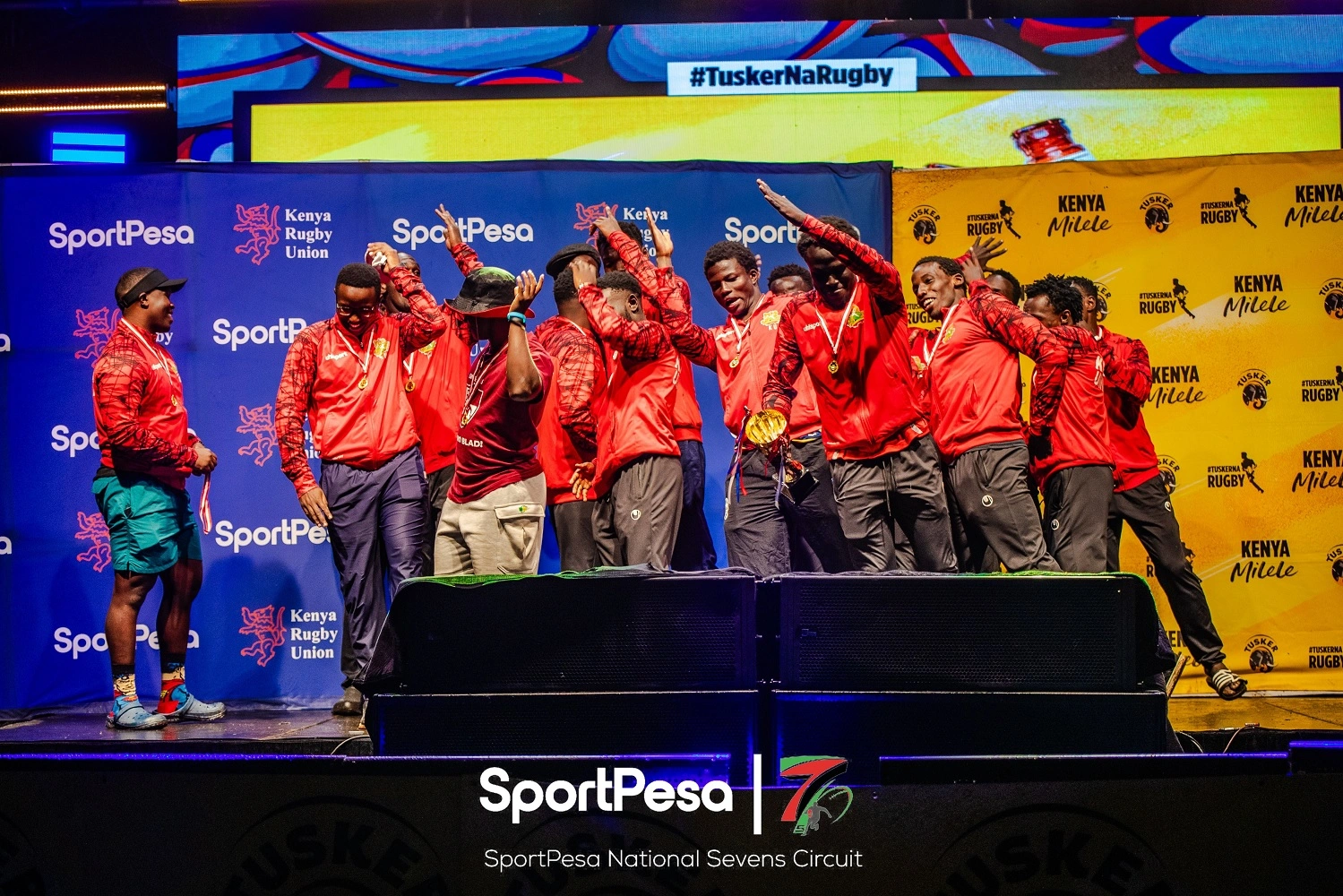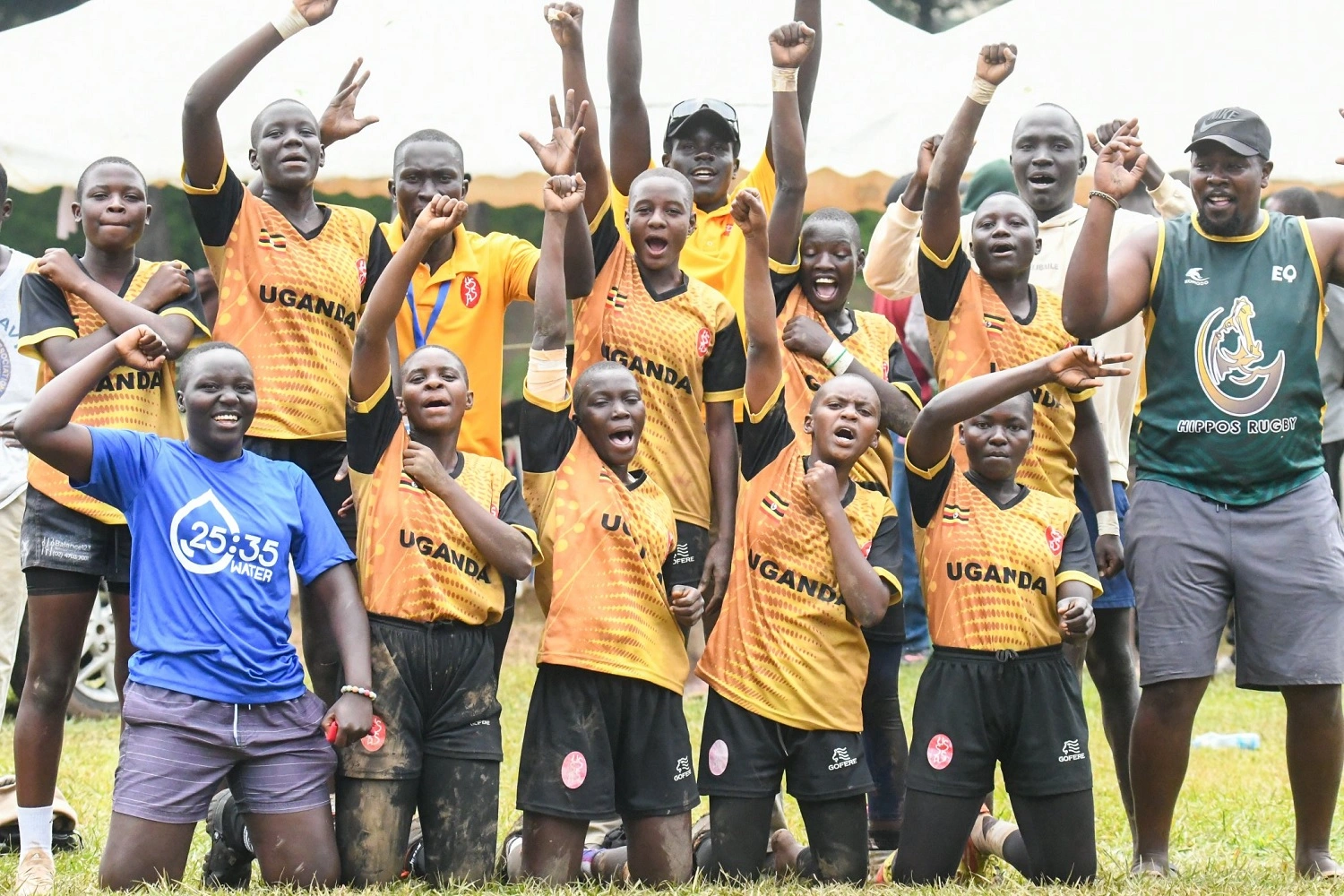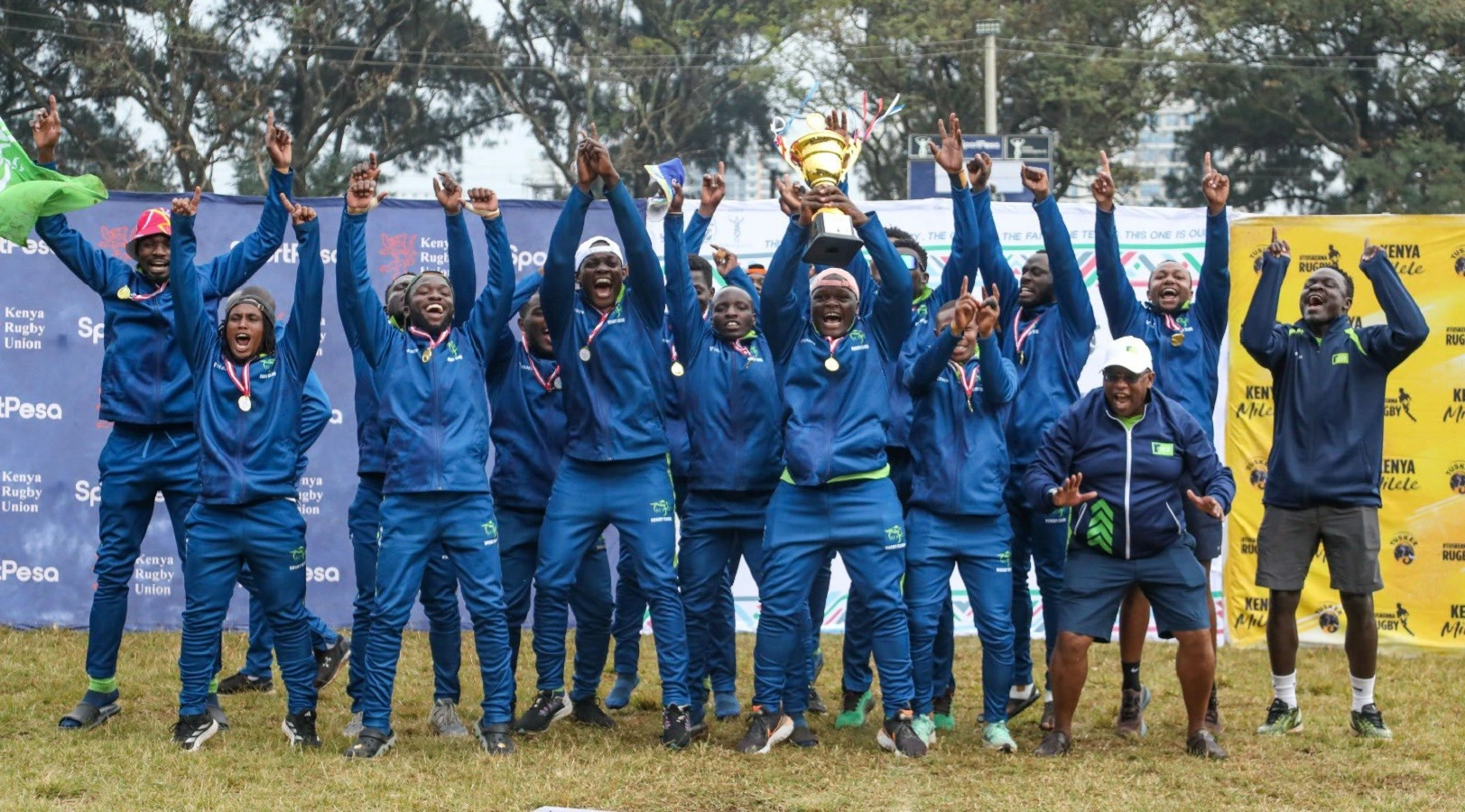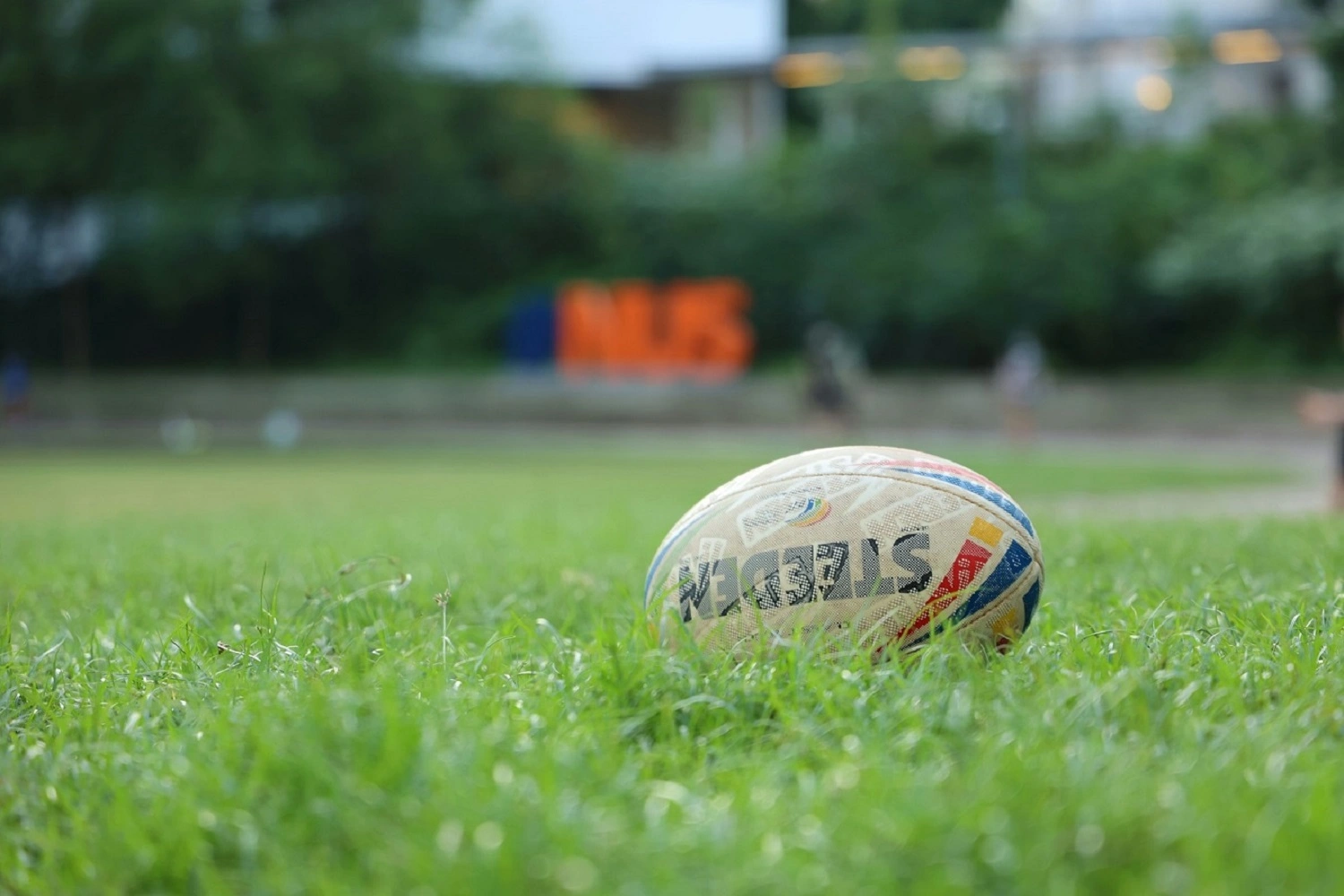
Safari 7s Analysis: How Shujaa's Defensive Cohesion and Trust Clinched a Safari Sevens Four-Peat
The 27th edition of the Safari Sevens had it all: thrilling action on the pitch, sherehe, and controversies—but at the end of the day, the Kenya Lionesses and Shujaa were crowned champions.
A too familiar script for Shujaa, who won an unprecedented four-peat in the competition. This is a team that last tasted defeat in the competition in 2021, against Germany, at the group stage. The 14-7 victory over Shogun in this year’s decider was the third straight final victory over the invitational outfit. So, how did the Shujaa pull off this victory?
Shujaa’s Road to Victory
Shogun delivered the first blow in the final against Kevin Wambua's side. An early Shujaa attack, which began brightly after they reclaimed their kickoff, crashed to a halt when Samuel Asati was isolated with the ball.
Shogun swarmed the breakdown, stole possession, and darted over to score barely a minute into the game.
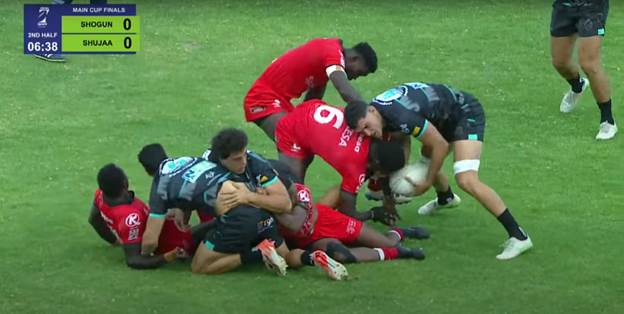
Shogun turns over possession.
The visitors were relentless in the first half, winning the territorial battle and forcing the home side to defend desperately. This is where Shujaa’s defensive prowess came into play.
Kenya did not deploy a sweeper and had seven players on the first line. This defensive formation allowed them to utilise an aggressive rush defence. The system worked, and with barely any possession, they pushed Shogun to their 22 and finally mounted the first real attack in the closing stages of the half.
Sustained attack phases from Kenya resulted in a yellow card for Shogun for a deliberate knock-on. Shujaa set up a scrum on the left-hand side; Asati snipped and dummied Festus Shiasi, who ran a searing underline that left a gaping hole for Asati to release Nygel Amaitsa to tie the score at the break.
While this was an exciting passage of play, the defensive structure to keep out Shogun after the initial breach was key.
The second half opened with a familiar scare: Shogun appeared to score almost immediately. However, the moment of déjà vu was shattered when the officials spotted an obstruction, chalking off the try.
Wabwire's Effect
Both sides had opportunities with the ball in hand, but neither could break the deadlock. Shujaa’s defence remained watertight while the attack faltered. Particularly, Patrick Odong’o had moments that got the crowd expectant, but Shogun tamed him well.
Up stepped his replacement, Floyd Wabwire, whose distinctive, different style of play from Patrick Odongo proved to be the match-winner. Floyed received a pass from about 15 metres from the line, ran against the grain to break feeble tackle attempts, and scored the decisive try.
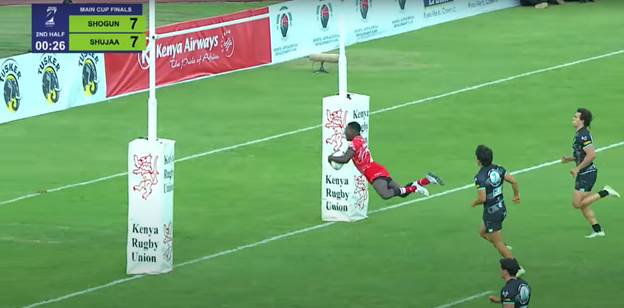
Wabwire’s Try
This was similar to his try in the Driftwood Sevens final, where he crisscrossed the pitch looking for an opportunity and surely found it.
Floyd’s attack as a winger is distinct from Odongo’s in that the latter primarily looks to beat the defenders on the outside with his sheer pace, while the former, as was the case highlighted above, can also use his footwork and work back in and away from his wing to scan for weak seams in the defence line.
Shujaa had earlier in the quarter-finals beaten the French Renegades 31-5 and Zimbabwe 29-19 in the semi-finals to advance to the decider. The blueprint was the same in both cases.
The Attacking Numbers in Safari 7s
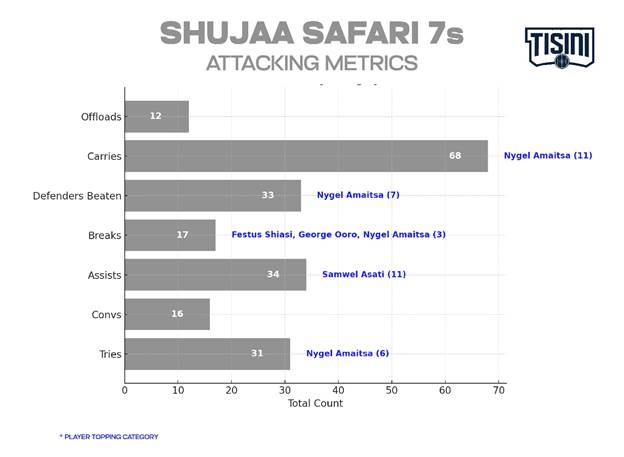
Trust and Defensive Cohesion in Shujaa
Defensive supremacy was the cornerstone for Shujaa in this year’s Safari Sevens. Because many members of the Shujaa squad have played together for an extended period, the defence benefits from high cohesion.
7s rugby defence heavily relies on trusting the player next to you to press together for effective line speed, to drift together, and to cover your weak shoulder.
In the knockout stages, Shujaa conceded an average of 10.3 points, with the data skewed by the high-scoring semifinal against Zimbabwe, which ended 29-19 in favour of the home boys.
Recently, the defensive efficiency has been a trend in the tournament. Shujaa has consistently shut down opponents in the finals, holding teams to an average of just three points. Their ability to deliver a perfect clean sheet twice in the last four seasons proves their top-tier defensive calibre.
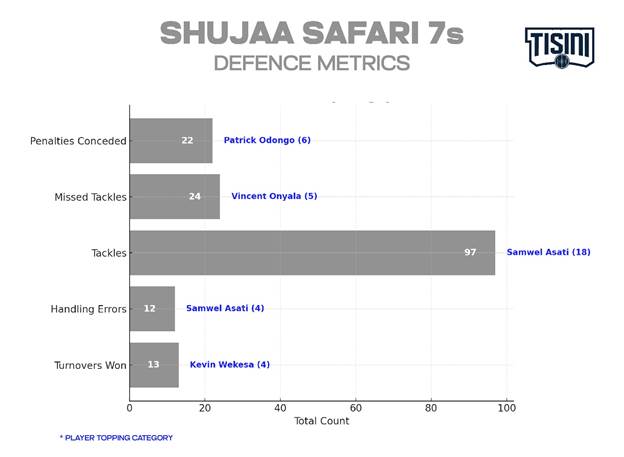
Notably, handling errors and penalties remains a thorn in the side and something the team could work on.
Ultimately, Safari Sevens offered the coaching group and selectors an excellent opportunity to expose new players to the systems and environment, and the display fosters confidence as the team seeks to bounce back to the top division in the World Sevens Series.
Feature Image Credit: Fanaka Studios


